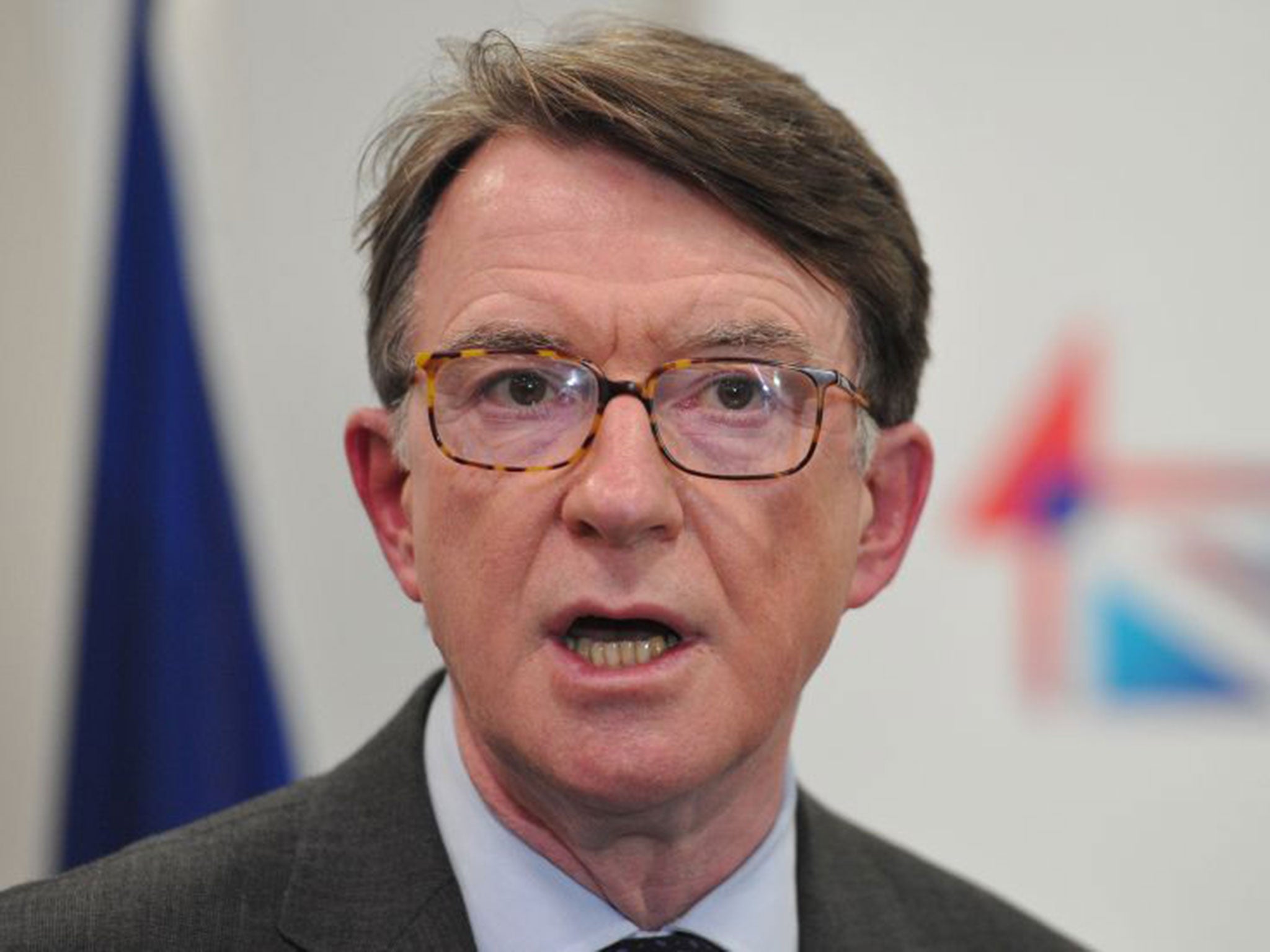EU referendum: Peter Mandelson breaks silence to warn over effects of Brexit
Labour peer will claim UK could lose access to the single European market and also lose preferential trading status

British exporters would face trade tariffs of up to 20 per cent on goods such as cars, whisky, pharmaceuticals and fashion sold around the world if the UK pulled out of the European Union, the former Trade Commissioner Lord Mandelson will warn on Tuesday.
In his first intervention in the referendum debate, the Labour peer will claim that the UK could not only lose access to the single European market but could also lose the EU’s preferential trading status in foreign markets.
In retaliation, he will warn, the UK might also have to raise tariffs on imported goods – pushing up the cost of foreign imports – while new trade deals are agreed. This he will claim “would be harder” than those in favour of Brexit think, as after years in the EU the UK has “no real trade negotiating capacity”.
While Lord Mandelson has always been an ardent pro-European, his views nonetheless carry weight as the man responsible for overseeing all EU trade deals between 2004 and 2008. “In trade you need bargaining chips in order to negotiate benefits in exchange and Britain is already a relatively open economy,” he is expected to say.
“Losing the EU’s preferential trading benefits in foreign markets could mean new tariffs of 10, 20 per cent or sometimes even more on key UK exports, such as cars, machine goods, whisky and textiles.
“We would end up having to sacrifice sensitive positions in order to secure these deals.”

Lord Mandelson’s comments came as David Cameron sought to dismiss allegations that the Remain campaign amounted to little more that “project fear”.
In a question-and-answer session with students, the Prime Minister denied he was fighting a negative battle and insisted that he was only interested in “project fact”.
“This is not about raising concerns and worries which aren’t there. They are real concerns and worries based on fact,” he said.
Mr Cameron also raised the issue of trade deals, pointing to the length of time it took Canada and Switzerland to negotiate free-trade agreements with the EU. He added that major economies would negotiate deals with the EU first and the UK second.
“It will take at least two years to work out our relationship with the EU,” he said.
The Prime Minister also invoked the success of the EU in rebuilding Europe after two world wars and bringing nations together.
“I never forget when I sit round that table – often at meetings that can be very frustrating with 27 other countries – I never forget that 70 years ago we were butchering each other in the continent of Europe, in two world wars, and now we talk with each other and try to resolve issues, we try to get things done for the good of our country, for the good of our continent.”
Meanwhile in Westminster the row continued over the decision not to give anti-EU ministers access to government papers related to the referendum.
On Sunday a Downing Street spokesman said that the only papers that would be withheld were those “specifically relating to the EU referendum”.But it later transpired that official advice to civil servants said that all documents with a “bearing on the referendum question” should not be shown to those ministers in favour of Brexit.
The Cabinet Secretary, Jeremy Heywood, will be questioned on the edict by MPs on Tuesday, but he has already been accused of acting in an unconstitutional manner by the employment minister, Priti Patel. “It is important that the Civil Service maintains impartiality during the EU referendum,” she said. “Secretaries of state are responsible for their departments. For an unelected official to prevent them being aware of the information they need for their duties is wrong.”
Join our commenting forum
Join thought-provoking conversations, follow other Independent readers and see their replies
Comments
Bookmark popover
Removed from bookmarks